 Inequalities | Mental health
Inequalities | Mental health
Accessibility of perinatal mental health services for women from Ethnic Minority groups
Barriers to accessing mental health care during pregnancy and the first postnatal year (perinatal period) seem to be greater for ethnic minority women.
Modelling the impact of covid on waiting lists for planned care
Working with the national collaboration to coordinate covid-related analysis, and the NHSE/I Midlands region, the Strategy Unit has produced a ‘systems dynamics’ model of waiting lists for planned care. The model is freely available for non-commercial use across the NHS. Here, Steven Wyatt and Mike…
Primary and Community Qualitative Insights
The COVID-19 response required rapid change and innovation across health and care. As part of a wider package of evaluation support, from April to June, the Strategy Unit led some qualitative work (training and supporting CCG staff to conduct interviews) across an STP to capture learning from…
How can Integrated Care Systems collect and use more ‘person-centred intelligence’?
Working with our partners Ipsos MORI, we have produced detailed guidance and an offer of services to address this question. This webpage contains information about the work, and all the products from it. Please get in touch if you would like to improve your use of person-…
Outcomes based commissioning: A framework for local decision making
This local decision-making framework aims to empower systems as they look to design new contracting approaches aimed at improving outcomes.
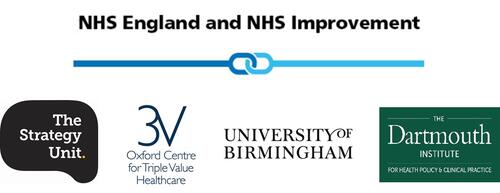 Better use of analysis | Inequalities | Public health and prevention
Better use of analysis | Inequalities | Public health and prevention
Midlands Population Health Management Academy
The Midlands Population Health Management Academy was part of a programme of support, commissioned by NHS England and NHS Improvement (Midlands) working in partnership with the Local Government Association and Public Health England. The Programme ran from March 2019 to March 2020. It was designed…
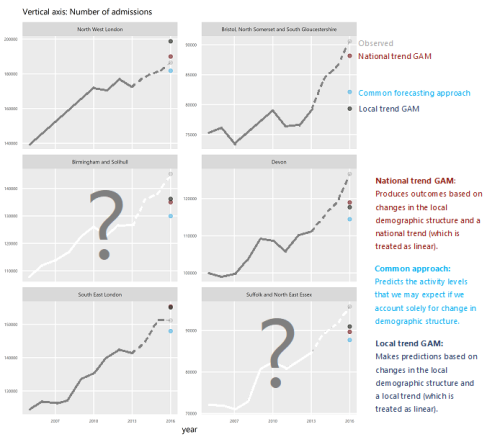 Elective care | Emergency care | Finance and payments | Policy | Primary, community and social care services
Elective care | Emergency care | Finance and payments | Policy | Primary, community and social care services
How will we know if Integrated Care Systems reduce demand for urgent care?
The implications of a blended payment system are far reaching: Decisions about planned activity levels will determine the total funding envelope for urgent care within a system and will influence the behaviour of healthcare providers and the services they deliver to patients.
Opening the ‘black box’ of scenario planning through realist synthesis
Scenario planning is recognised as an effective aid to strategic planning in complex, uncertain conditions. It is an approach that the Strategy Unit is increasingly building into its work with health and care systems and third sector organisations.
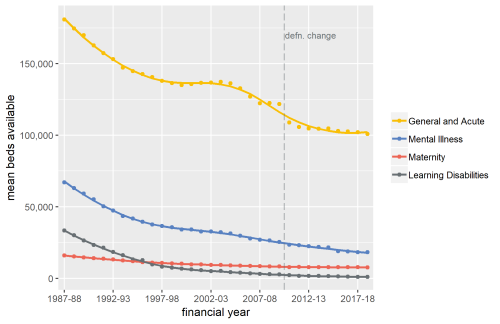 Elective care | Mental health
Elective care | Mental health
Exploring Mental Health Inpatient Capacity
This report explores the pressures on inpatient mental health services across Sustainability and Transformation Partnerships in England, drawing on a wide range of datasets, published research and interviews with staff working on mental health services. The report was commissioned by and includes…
Lessons, Evaluation and Learning from the Dudley MCP
Learning from Dudley MCP
Learning and Development of Problem Solving Techniques
What is innovation? In this video, Lucy Hawkins (Senior Consultant) describes our understanding of the term ‘innovation’ and the conditions that allow it to flourish. What’s the role of evidence? In this video, Alison Turner (Managing Consultant) outlines the key principles of…
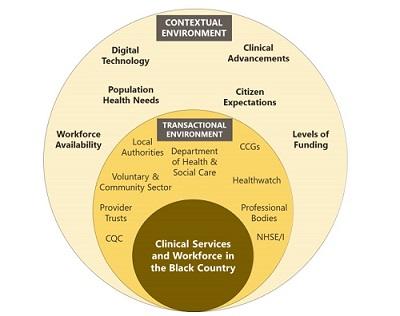 Better use of analysis | Primary, community and social care services
Better use of analysis | Primary, community and social care services
Clinical Workforce Scenarios for the Black Country
The future is highly uncertain. Unless we consider the diverse factors that could affect health, our plans will lack creativity and sustainability. The challenges facing NHS systems are headline news: NHS structures are frequently the subject of organisational change; new policy directives; funding…
 Service improvement
Service improvement
PHM Core Team - 2nd July 2019
PHM Academy - Core Team Event 2nd July 2019 We held our first Core Team event on the 2nd July 2019 which was a huge success. All STPs arrived in high numbers and were given the opportunity to hold talks with some of the leading experts, which included:
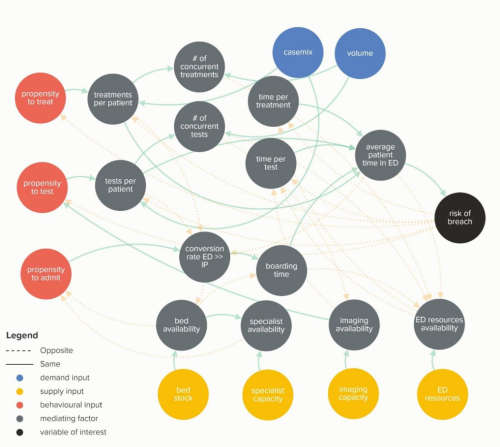 Emergency care | Policy
Emergency care | Policy
Waiting Times and Attendance Durations at English A&E Departments
In March 2019, NHS England is expected to report the outcome of its review of constitutional waiting times targets. This report reviews the factors that have led to the decline in performance against one of these targets - the 4-hour target for Accident and Emergency Departments. The analysis…
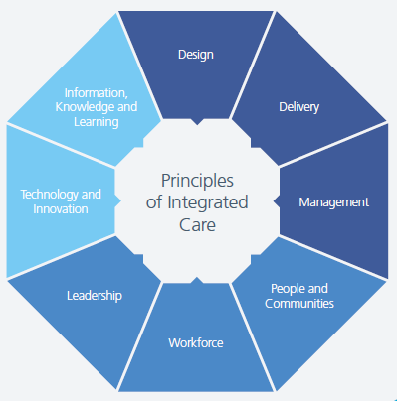 Inequalities | Policy | Primary, community and social care services
Inequalities | Policy | Primary, community and social care services
New care models - what's the evidence
High level findings from a series of evidence reviews on new care models.
 Inequalities | Mental health
Inequalities | Mental health
Evaluation of Building the Right Support: findings to date
Building the Right Support is a national plan to provide better support to people with a learning disability or autism. It says what services and supports are needed to help people whose behaviour challenges services or who have mental health problems.
The Potential Economic Impact of Virtual Outpatient Appointments in the West Midlands: A scoping study
The Strategy Unit was recently approached to examine the case for a shift from traditional outpatient services to the use of virtual and remote access technologies for appropriate outpatient appointments. An essential part of this assessment was broadly scoping the potential socio-economic impacts…
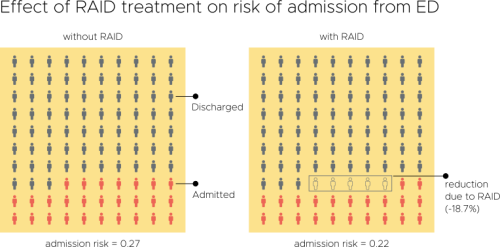 Mental health
Mental health
Evaluation of an Integrated Mental Health Liaison Service (Rapid Assessment Interface and Discharge Service) in Northern Ireland
A high proportion of patients treated for physical health conditions also have co-morbid mental health problems; and there is growing acceptance of a need to raise awareness of mental health issues in acute hospitals and improve the experience of care and treatment for this group.
 End of life
End of life
The Status of Electronic Palliative Care Coordination Systems in the West Midlands
Commissioned by NHS England, this report describes the state of electronic palliative care coordination systems in the West Midlands. It draws on a review of the literature, interviews with local NHS staff and responses to information requests. As people approach the end of their lives…
Lessons from the Vanguard: Innovation and Evaluation
The problems facing health and care services are so well known as to be documented in the media most days. These problems arise from a mismatch between need and provision: a mismatch where there is no reason to assume fundamental change. So innovation – in both product and process – is needed. Yet…